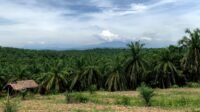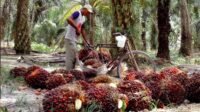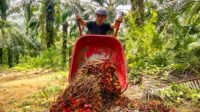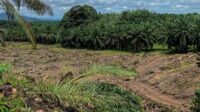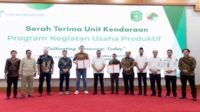PALMOILMAGAZINE, JAKARTA – The Committee for the Defense of Constitutional Rights (KEPAL) has once again taken legal action to safeguard the rights of marginalized groups. After previously filing a formal review of the Omnibus Law on Job Creation, KEPAL has now officially submitted a judicial review (material test) of the law converting the Job Creation Perppu into legislation at the Constitutional Court (MK).
KEPAL argues that the law contradicts the 1945 Constitution and undermines the constitutional rights of farmers, fishers, and indigenous peoples. The coalition, consisting of 13 organizations and one individual—including the Indonesian Peasants Union (SPI), Agrarian Reform Consortium, Sawit Watch, People’s Coalition for Fisheries Justice (KIARA), and Indonesia for Global Justice (IGJ)—has united to mount this constitutional challenge.
The petition focuses on several critical provisions, including those governing coastal and small island management, seed and food imports, foreign investment in horticulture, community water rights, land tenure in forest areas, and the establishment of the Land Bank. According to KEPAL, these provisions could weaken food sovereignty, open the door to the privatization of natural resources, and create legal uncertainty for vulnerable communities.
Also Read: Olenka Brings Palm Oil Education to the Public Through Sawit on Town 2025
“The Job Creation Law positions the people as victims of a legal-political agenda that only serves big capital. Under the pretext of attracting investment, the state has sacrificed the constitutional rights of farmers, fishers, and indigenous communities,” said Rahmat Maulana Sidik, Executive Director of IGJ, in an official statement received by Palmoilmagazine.com on Saturday (September 20, 2025).
Echoing this concern, Sawit Watch Executive Director Achmad Surambo warned that the law exacerbates land inequality and agrarian conflicts, including in the palm oil sector. Sawit Watch data recorded up to 2024 shows 385 palm oil companies in conflict with 1,126 local communities nationwide.
Meanwhile, KIARA Secretary-General Susan Herawati highlighted the law’s impact on coastal communities, noting that its provisions on marine utilization revive the concept of Coastal Water Utilization Rights (HP3)—previously declared unconstitutional by the Constitutional Court in 2010. “For local communities, access to the sea is not a matter of permits, but a fundamental right that must be guaranteed by the state,” she emphasized.
KEPAL stressed that this judicial review is not merely a procedural legal action but part of a broader constitutional struggle to safeguard justice and dignity. The coalition hopes the Constitutional Court will grant their petition and strike down the disputed provisions of the Omnibus Law, ensuring legal certainty and fairness for all citizens. (P2)



